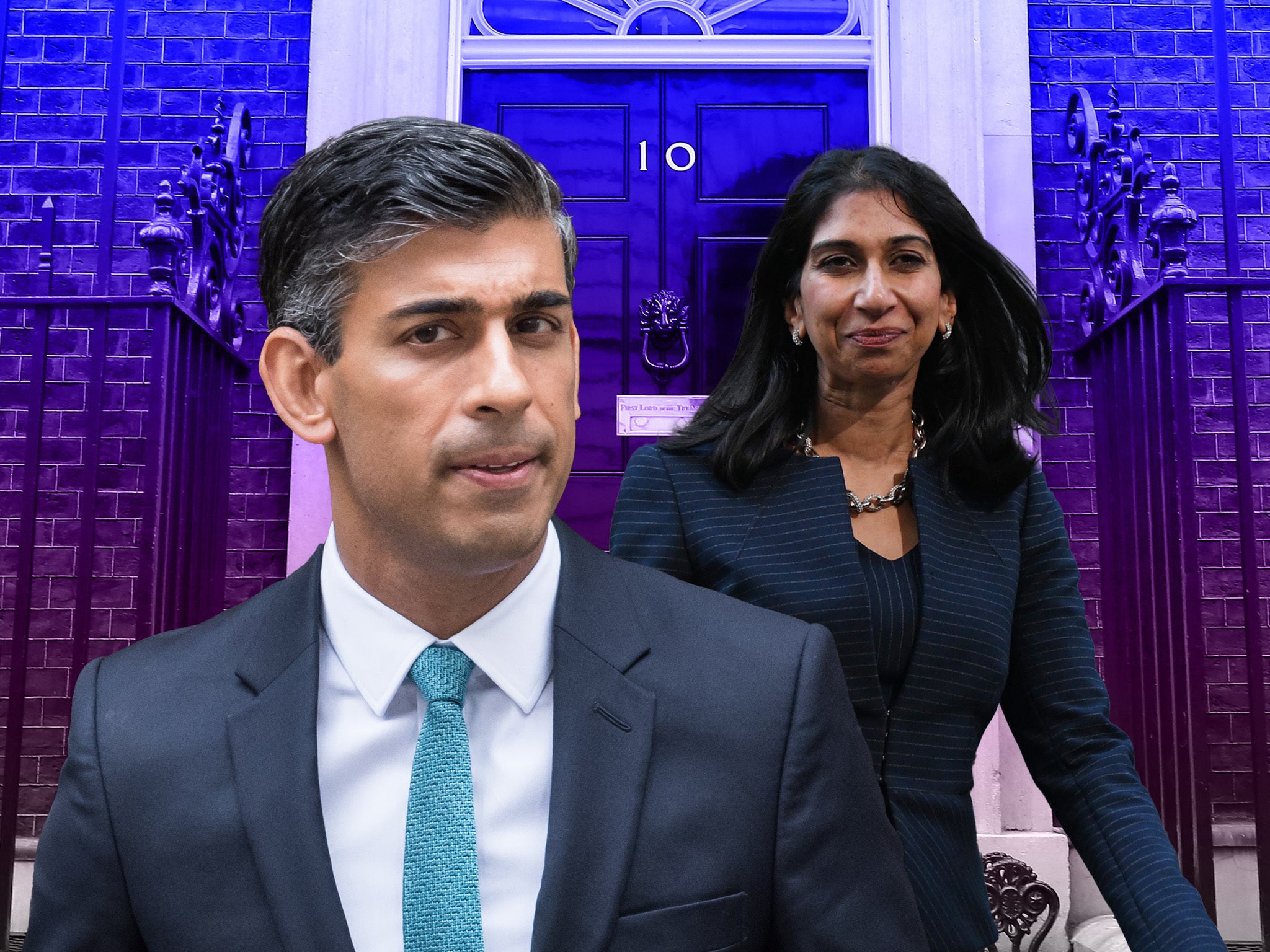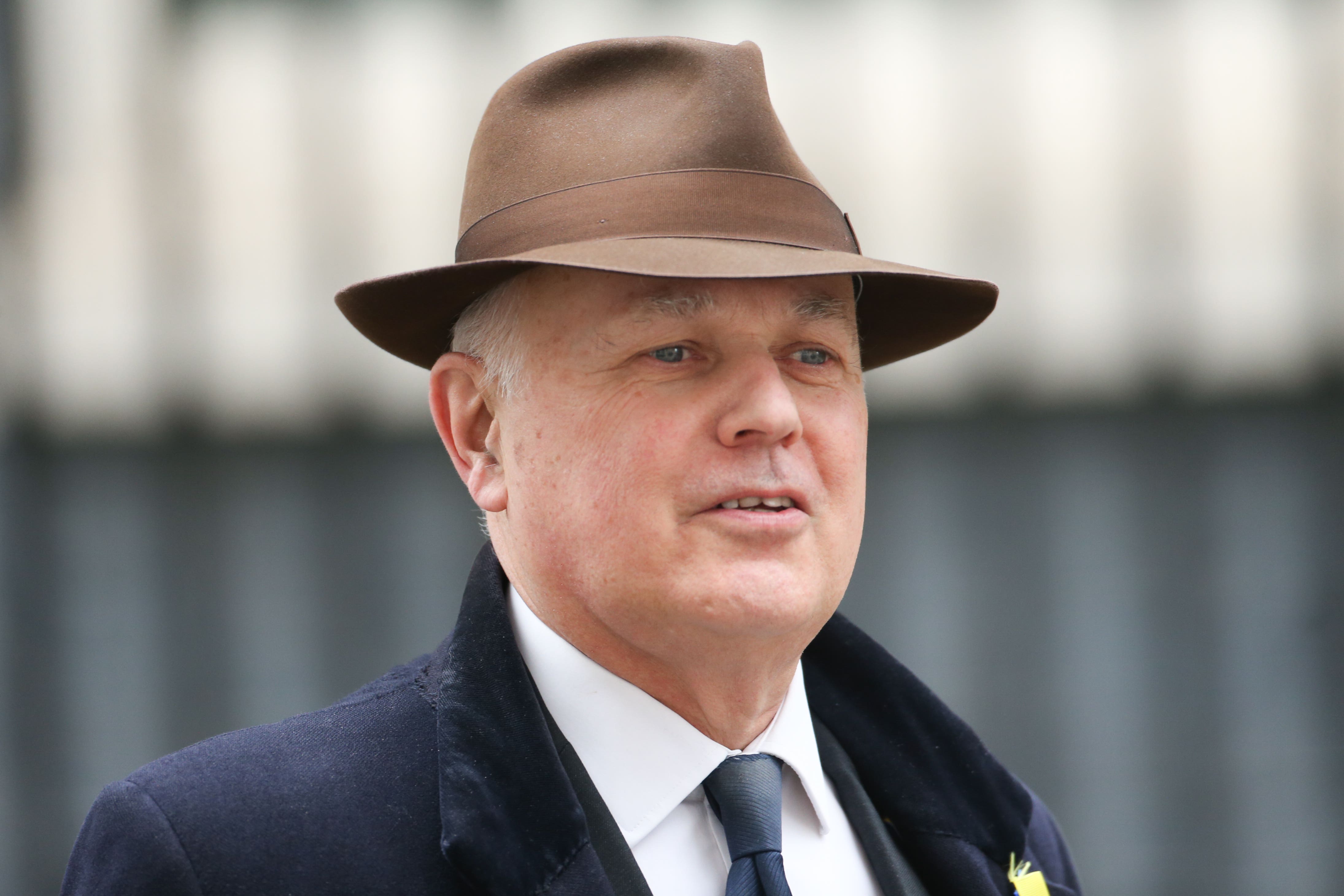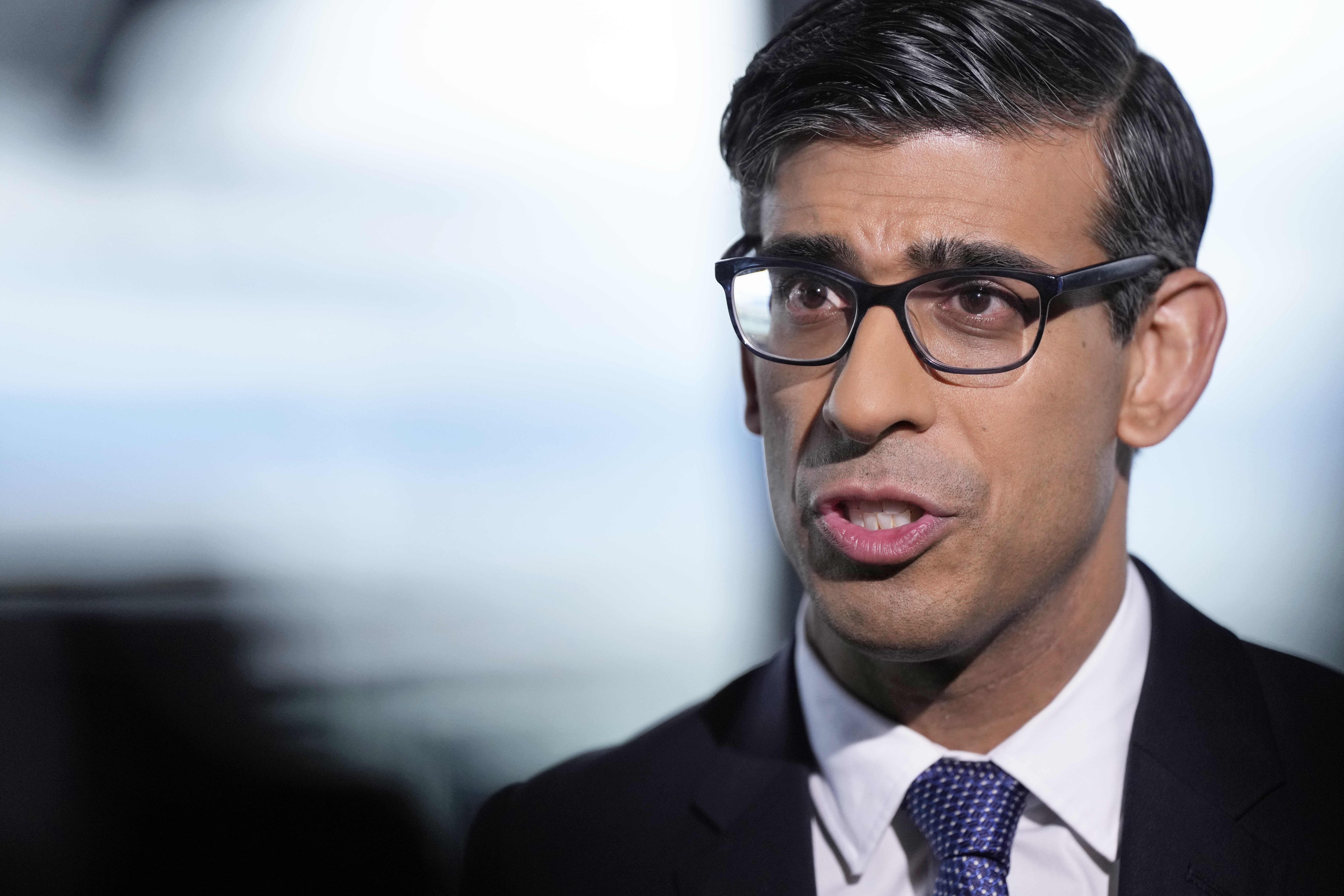Tory MPs plead with Sunak to ‘get a grip’ of immigration
The former Tory leader Sir Iain Duncan Smith says public will turn on party if it fails to bring down net migration

Your support helps us to tell the story
From reproductive rights to climate change to Big Tech, The Independent is on the ground when the story is developing. Whether it's investigating the financials of Elon Musk's pro-Trump PAC or producing our latest documentary, 'The A Word', which shines a light on the American women fighting for reproductive rights, we know how important it is to parse out the facts from the messaging.
At such a critical moment in US history, we need reporters on the ground. Your donation allows us to keep sending journalists to speak to both sides of the story.
The Independent is trusted by Americans across the entire political spectrum. And unlike many other quality news outlets, we choose not to lock Americans out of our reporting and analysis with paywalls. We believe quality journalism should be available to everyone, paid for by those who can afford it.
Your support makes all the difference.Conservative MPs have urged Rishi Sunak to “get a grip” of immigration by ending cabinet rows and coming up with a clear plan to control the overall number of people coming into the UK.
The calls come ahead of this week’s official figures which are expected to show net migration rising to between 700,000 and 1 million.
Right-wing MPs are warning the PM of the “unbearable strain” of record numbers – arguing the party will be punished at the ballot box next year if it fails to tackle the “biggest single issue” facing the nation.
Even Tory moderates told The Independent they would welcome a crackdown on some students bringing family members, changes to salary requirements and an overall annual cap on visa numbers.
Business leaders also warned important economic problems were going unsolved because attention was being “deflected” by the debate over immigration.
The former Tory leader Iain Duncan Smith said: “We set ourselves a task of reducing migration and if we don’t achieve that then the public will mark that down against us.”
And former cabinet minister David Davis called for clarity and challenged home secretary Suella Braverman to focus on “fixing” the immigration system rather seeking to blame others. “You have to agree on a systematic policy. There’s no point attacking each other, implicitly or explicitly.”
It comes as the government’s own migration tsar, Professor Brian Bell, backed calls to cut the number of foreign graduate visas granted, over fears they allow a route to stay in the UK on often low-skilled and low-paying jobs for up two years after their studies end.
The chairman of the Migration Advisory Committee (MAC) told The Telegraph: “An offer to do anything you want for two years seems unnecessary to us, so personally I’ve never been massively in favour of the graduate route.”
Ms Braverman appears at odds with senior cabinet ministers on the issue, and is said to have so far received backing for only one of her proposals to cut numbers amid government infighting. Last week she urged the PM to stick to the 2019 Tory Party manifesto pledge to bring down overall immigration figures.
At a conference, she said there was “no good reason” the UK can’t train its own fruit pickers – before Mr Sunak announced another 45,000 seasonal agricultural visas, with the capacity for a top-up of 10,000.
Ms Braverman’s closest ally Sir John Hayes, founder and leader of the right-wing Common Sense Group, urged Mr Sunak to back changes to the visa system “quickly” by restricting students’ relatives and raising minimum salary thresholds.
He told The Independent: “Immigration at the level of anything like 700,000 or 800,000 is entirely unstainable and therefore unacceptable – it would be delusional to think otherwise.”
He added: “It will be an unbearable strain. This is the single greatest problem that the government faces.”

One senior Tory on the right of the party put pressure on Mr Sunak by putting the scale of the issue in the context of the prime minister’s home town. “If it’s close to a million a year that’s three or four Southamptons – we haven’t been building for that,” the ex-minister said. “The public will not be pleased.”
Even centrist Tory MPs – also worried the big figure will spark fresh outrage from floating voters angry at the failure to stop the small boats – fears No 10 is mired in uncertainty on its immigration policy.
One senior Tory moderate, a Sunak supporter, said the government should announce plans for an overall annual cap on the number of visas. “We need a clear-cut policy and it would clarify the issue.”
The MP told The Independent: “The frustration is that the government hasn’t been clear on what it wants and what the immigration strategy is. We have to get a grip.
“Constituents get outraged by immigration. But what really gets them p****d off is illegal migration. We need to have a clear argument on legal migration to explain there’s so many students and so many workers we need.”
Sir Iain told The Independent the UK is “addicted to cheap labour” and needs to invest in technology to perform low-paid tasks such as picking and cleaning fruit. He said high net migration figures are contributing to the country’s housing crisis and the number needed to be brought down.
“We seem as the Conservative Party now, compared to under Mrs Thatcher, incapable of taking tough decisions and seeing them through quickly,” Sir Iain said.

“We have been in power now for four years, we set ourselves a task of reducing migration and if we don’t achieve that then the public will mark that down against us.
“So don’t start making excuses about why cheap labour is necessary here. We need to say to people if you invest in technology you will be offered significant tax relief to get rid of the cheap labour.”
Mr Sunak this week backed away from the 2019 Tory manifesto pledge to keep migration below 250,000. But on a visit to the G7 in Japan he did concede immigration into Britain was “too high”. He said he would not “put a number” on a target, but did suggest he wanted to bring it to below the level he “inherited” – around 500,000.
Former cabinet minister Jacob Rees-Mogg also said net migration was “ridiculously high” and predicted a backlash from voters: “I think voters are completely fed up with immigration not being controlled and politicians proposing to do one thing and doing another.”
Former cabinet minister Robert Buckland, meanwhile, said the PM would be unwise to make more pledges on reducing numbers when the net migration figure comes out next week. “The big targets and promises are meaningless,” he said.
Backing some of the Tory right’s ideas, the ex-justice secretary said: “If there’s an issue with some types of students bringing their dependents the government is right to look at that. And I don’t have an issue with raising the threshold on salary requirements.
“But let’s have a sophisticated debate rather knee-jerk nonsense about the need for British pickers,” Mr Buckland said. “We have to get real and consider the need to get the economy growing, the need to have people fill shortages in care homes and agriculture – rather than jumping and down about an overall number.”
Ms Braverman is pushing for five proposals to cut legal migration – including raising the salary threshold for skilled workers and reducing the time foreign students can stay in the country, according to The Times.
But Mr Hunt and education secretary Gillian Keegan are reportedly pushing against moves, with only a proposal to stop foreign master’s students from bringing over family members thought to be agreed upon.
Britain’s top universities warned Mr Sunak against a crackdown on overseas students – urging the government to take students out of the overall net migration figure to depoliticise the issue.
The Russell Group, representing 24 elite universities, said foreign students brought in “vital export income” and helped subside research and support for domestic students.
Meanwhile, the Federation of Small Businesses warned the immigration debate and the government’s controversial refugee policy, which includes plans to send those who arrive in the UK on a small boat to Rwanda, was deflecting attention away from important economic issues.
Policy head Tina McKenzie said: “We’re currently faced by a situation in which the debate over immigration is splintering into different areas, including refugee policy. This is deflecting attention away from sensible business immigration solutions which the Home Office urgently needs to address.
“An easy-to-access and affordable business visa system is what matters to small firms and what the government should be pursuing to tackle the persisting issue of skills and labour shortages.”
Kate Nicholls, boss of industry body UK Hospitality, also joined calls to “depoliticise” the discussion about immigration. She said: “The overarching debate gets taken over by small boats, illegal migration, and overall numbers coming in, rather than it being a more nuanced, pragmatic approach.
“We need to have a much more grown-up discussion about immigration, how many people we have available to work in the labour market and what are the shortages we have.”
No 10 declined to comment.




Join our commenting forum
Join thought-provoking conversations, follow other Independent readers and see their replies
Comments